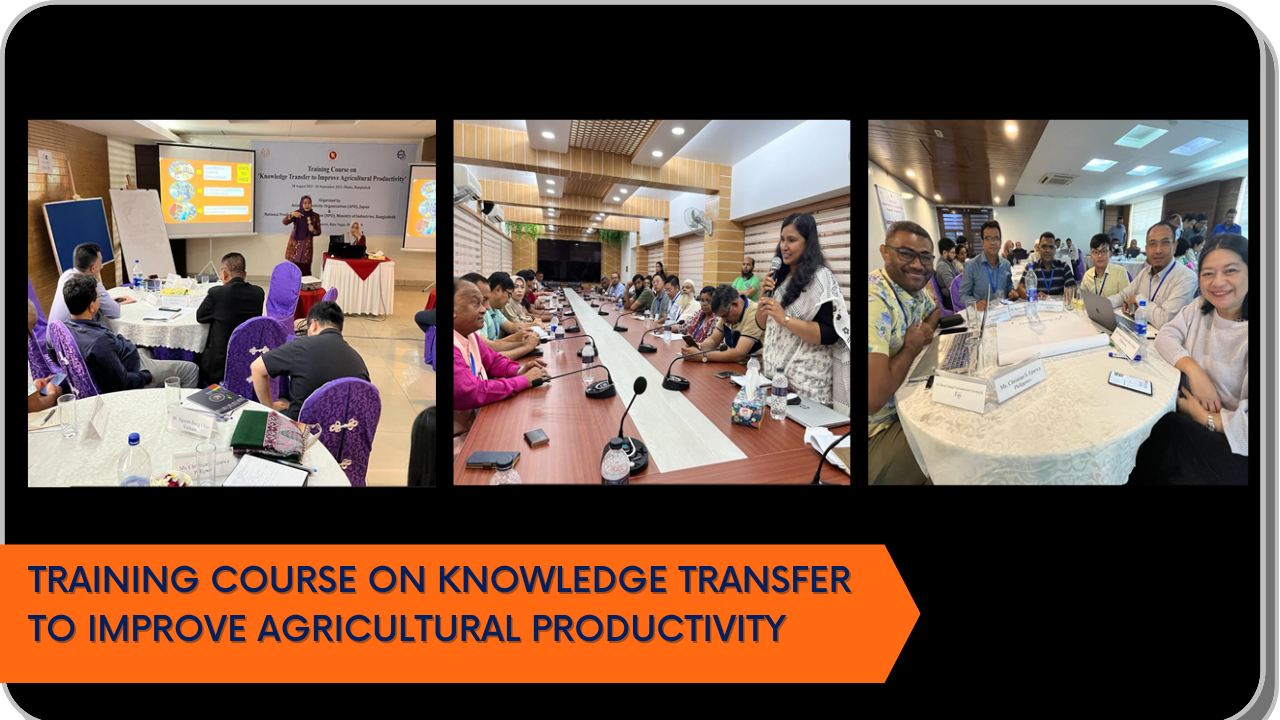
Select Page

Transferring knowledge and technologies to farmers plays a pivotal role in continuously improving productivity, increasing yields, and enhancing overall output quality. The Agricultural Knowledge and Information System serves as a key tool for the exchange of knowledge among stakeholders. However, despite the evolution of technologies and methodologies, not all farmers in APO member economies possess the means to adopt and effectively utilize them. To address this challenge and bolster the capabilities of farmers while introducing cost-effective technologies and practices, the National Productivity Organisation of Bangladesh in collaboration with the APO Secretariat organized a training course on Knowledge Transfer to Improve Agricultural Productivity, 28 August–1 September.
The face-to-face training course in Dhaka was attended by 23 participants from 13 APO members. It was facilitated by three resource persons from Bangladesh, India, and Japan who presented various methodologies for transferring knowledge and disseminating technology to farmers across the region. The course covered a wide array of topics, including global developments in agricultural extension and fundamental principles of knowledge transfer, methodologies, techniques, and practical applications. The experts also provided insights into the current landscape of agricultural extension services within APO members.
The training course included case studies of successful knowledge transfer models and the use of ICT in agriculture in Bangladesh, India, and Japan. Participants had the opportunity to visit the Agricultural Extension Department in Dhaka and its Extension Center in Shavar, gaining firsthand exposure to effective knowledge transfer systems in Bangladesh. This initiative aligns with the APO Vision 2025 focus on enhancing innovation capability. The APO hopes that the training course has empowered participants to develop effective knowledge transfer plans, ultimately benefiting farmers and leading to advances in agriculture in the region.